News
22 items found, showing page 1 of 2

410 million year old fossil which defies classification enters collection of National Museums Scotland
UNDER EMBARGO UNTIL 7pm GMT, Wednesday 21st January
A 410 million year-old fossil from Aberdeenshire in Scotland which scientists have identified as being a ‘new’ form of life, distinct from plants or fungi, has been added to the collections of National Museums Scotland.

Prized treasure from the Galloway Hoard on show for the first time in Kirkcudbright
A unique rock crystal jar found as part of the Galloway Hoard has gone on public display for the first time. The Galloway Hoard: Rock Crystal Jar exhibition at Kirkcudbright Galleries, near where the Hoard was first discovered, will run until 14 June 2026.
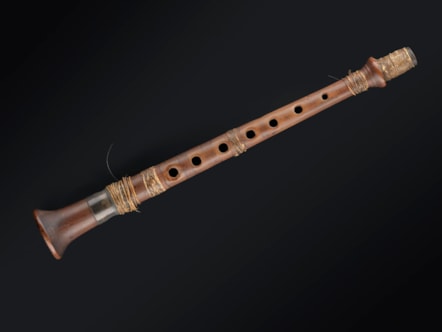
Gaelic stories behind National Museum collection objects revealed
Scotland’s oldest known bagpipe chanter, a horn spoon collected by an Austrian aristocrat and an exquisite medieval rock crystal charmstone are among the Gaelic stories behind 15 objects in the collections of National Museums Scotland which have been published in a new bilingual online resource.

Sgeulachdan Gàidhlig air am foillseachadh mu nithean ann an cruinneachadh an Taigh-tasgaidh Nàiseanta
Tha am feadan pìoba-mhòir as sine ann an Alba, spàin adharcach a chruinnich bean-uasal às an Ostair agus clach-sheuna criostail-creige àlainn às na meadhan-aoisean am measg nan sgeulachdan Gàidhlig air cùl 15 nithean ann an cruinneachaidhean Taighean-tasgaidh Nàiseanta na h-Alba a chaidh fhoillseachadh ann an goireas ùr dà-chànanach air-loidhne.
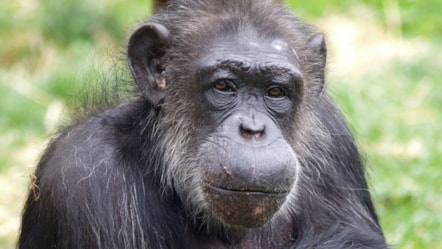
Celebrity chimp's life story revealed in pioneering study
A new study led by researchers at National Museums Scotland describes the first comprehensive osteobiography of a zoo animal, a cutting-edge scientific method that involves the analysis of bones and tissue. These techniques have been applied to reveal the in-depth story of the life of Choppers, star of the 1970s PG Tips advertising campaign, illustrating the changing role of zoos over the past 50 years.
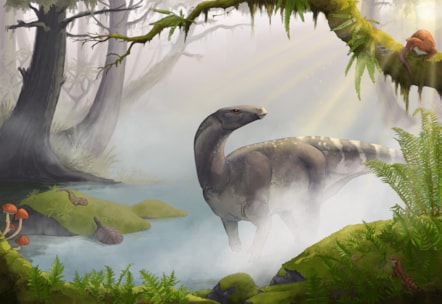
Jurassic dinosaur from the Isle of Skye revealed
A fossil first spotted in Skye over 50 years ago has finally been extracted from the base of the cliff where it was found and, following analysis, formally identified as a Jurassic dinosaur.
![Curator Dr Sarah Laurenson with objects from the collection of National Museums Scotland to be studied as part of new Gaelic language project, Tha Sgeul Ri Innse [credit Duncan McGlynn]-9](https://cdn.prgloo.com/media/f1f4298deb52493e902256404e503710.jpg?width=442&height=663)
New research project to reveal Gaelic stories behind museum objects
Powder horns from the 17th to 19th century, a road sign from Skye and a handmade crogan, or earthenware pot, are among 100 objects to be reappraised in a new project which aims to reveal the Gaelic stories and connections behind material held in the National Collection.
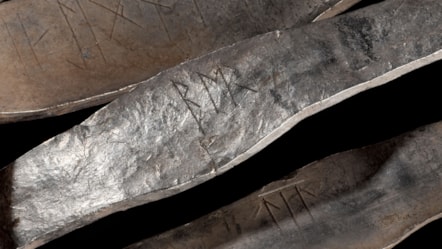
New runic translation reveals community ownership of the Galloway Hoard
On the eve of its unveiling in Adelaide on the first leg of an international tour, the first translation of a runic inscription on an arm ring from the Viking-age Galloway Hoard has cast fascinating new light on who might have owned the famous treasure.
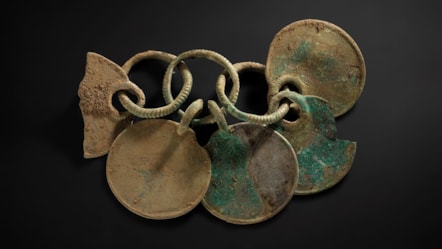
Unique Bronze Age Hoard acquired for the nation
One of the most significant hoards ever found in Scotland has been saved for the nation, having been acquired by National Museums Scotland. The Bronze Age Peebles Hoard was discovered in the Scottish Borders by a metal detectorist in 2020. It has since been painstakingly excavated, analysed and catalogued, revealing dozens of rare objects for the first time. Efforts are now underway to secure funding for the continued research and conservation of the hoard and to uncover the secrets of this one-of-a-kind discovery.
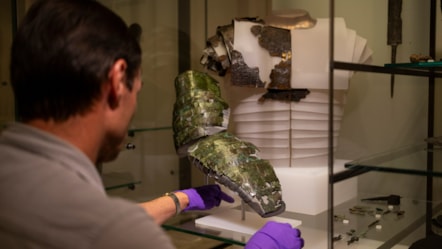
Rare Roman armour goes on permanent display at the National Museum of Scotland
An exceptionally rare piece of Roman armour which was recently reconstructed from dozens of fragments has gone on display in its entirety for the first time in Scotland.
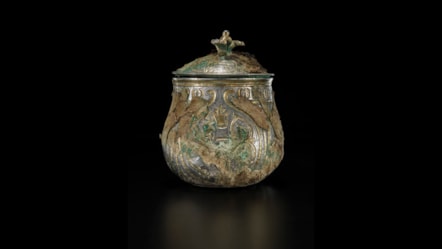
Distant origin of star object from the Galloway Hoard revealed ahead of its first public display
On the 10th anniversary of its discovery, new research and conservation has revealed the West Asian origin of the lidded vessel which contained many of the unique treasures that comprise the Viking-age Galloway Hoard, and which will go on public display for the first time later this month.
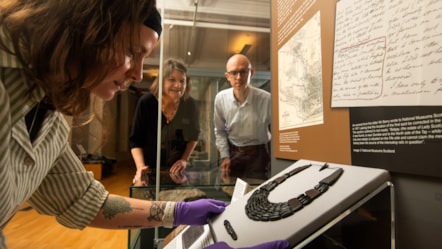
Bronze Age jewellery restored for the first time in thousands of years
An early Bronze Age necklace and bracelet have been painstakingly restored by experts at National Museums Scotland. The jewellery will be seen in its original form for the first time in over 4000 years when it goes on display at The McManus: Dundee’s Art Gallery & Museum this September, to coincide with Scottish Archaeology Month.
